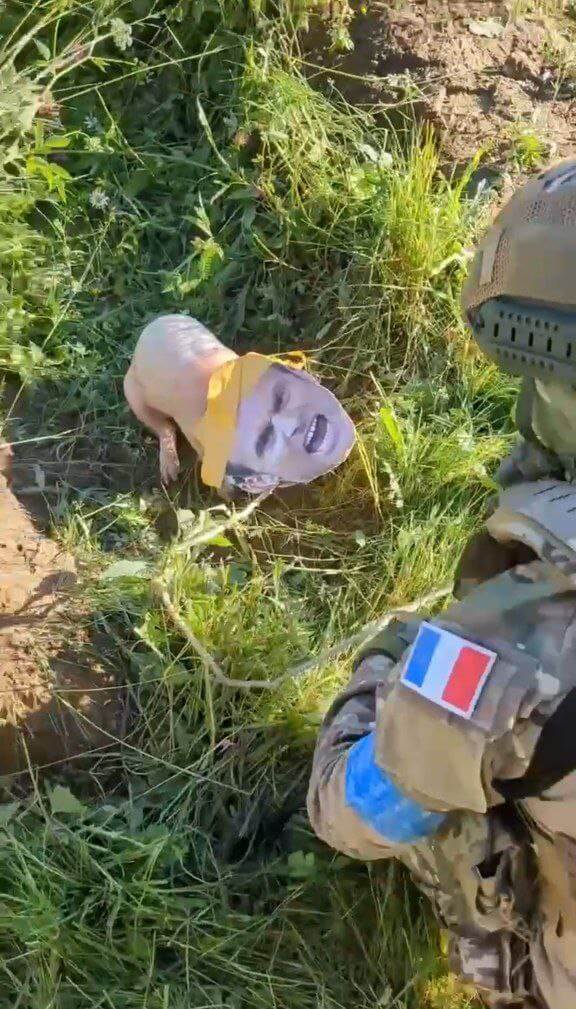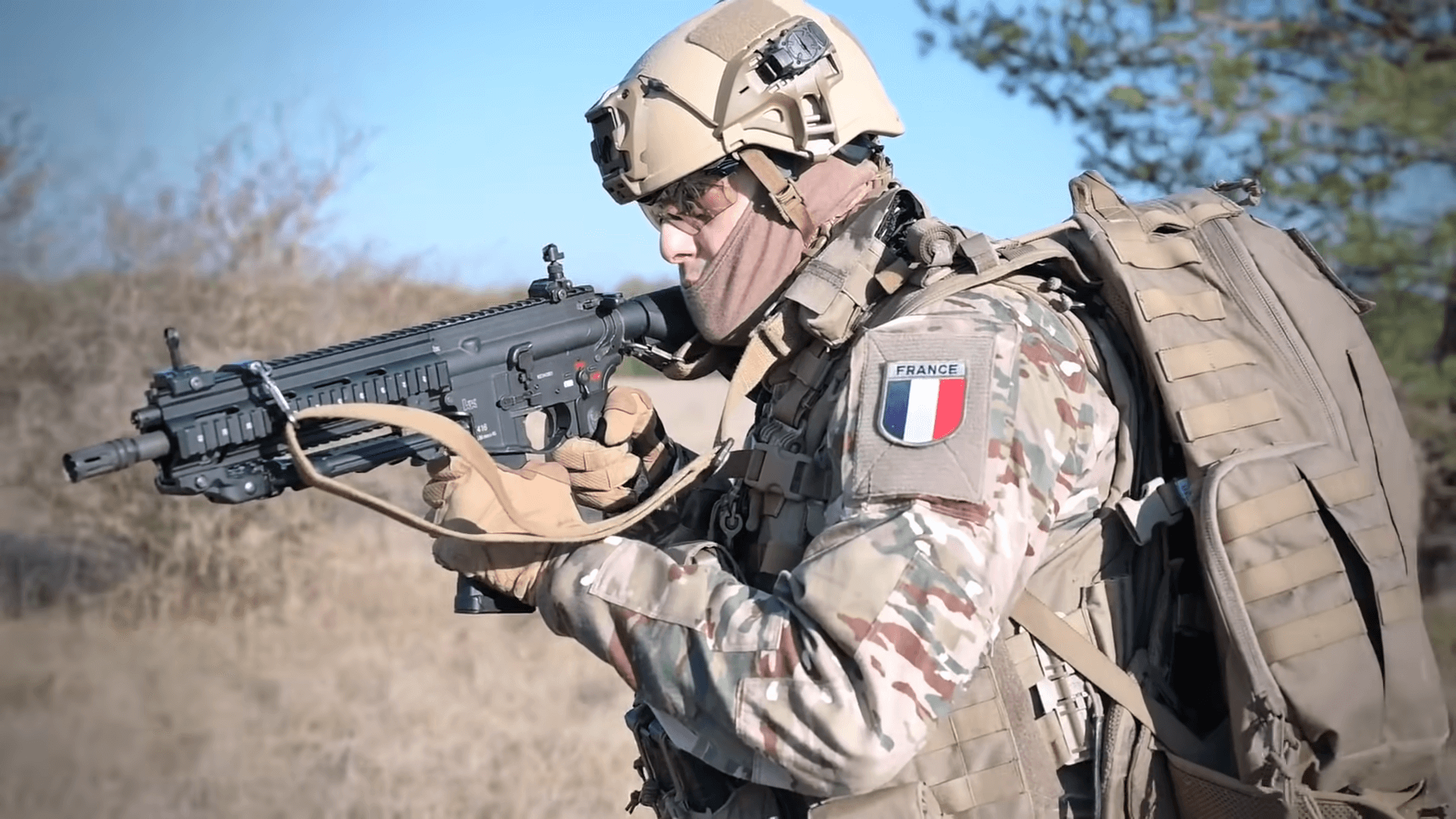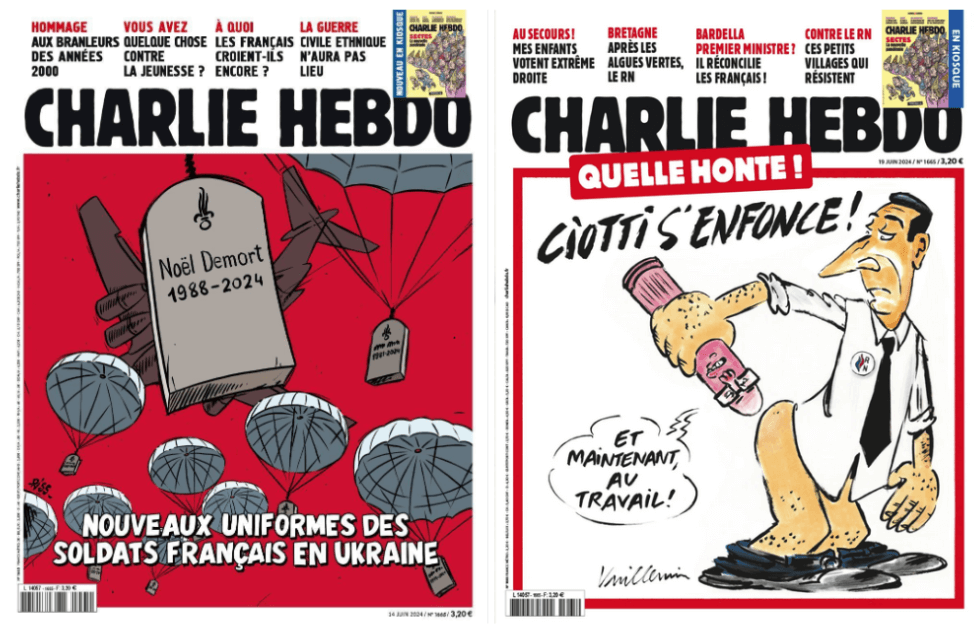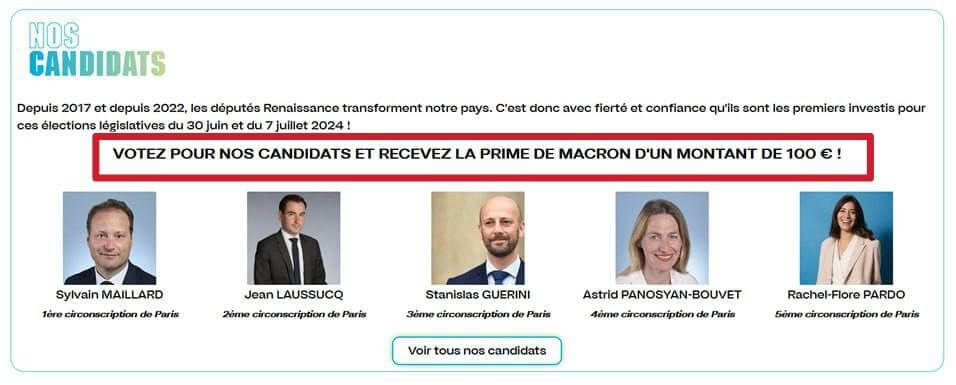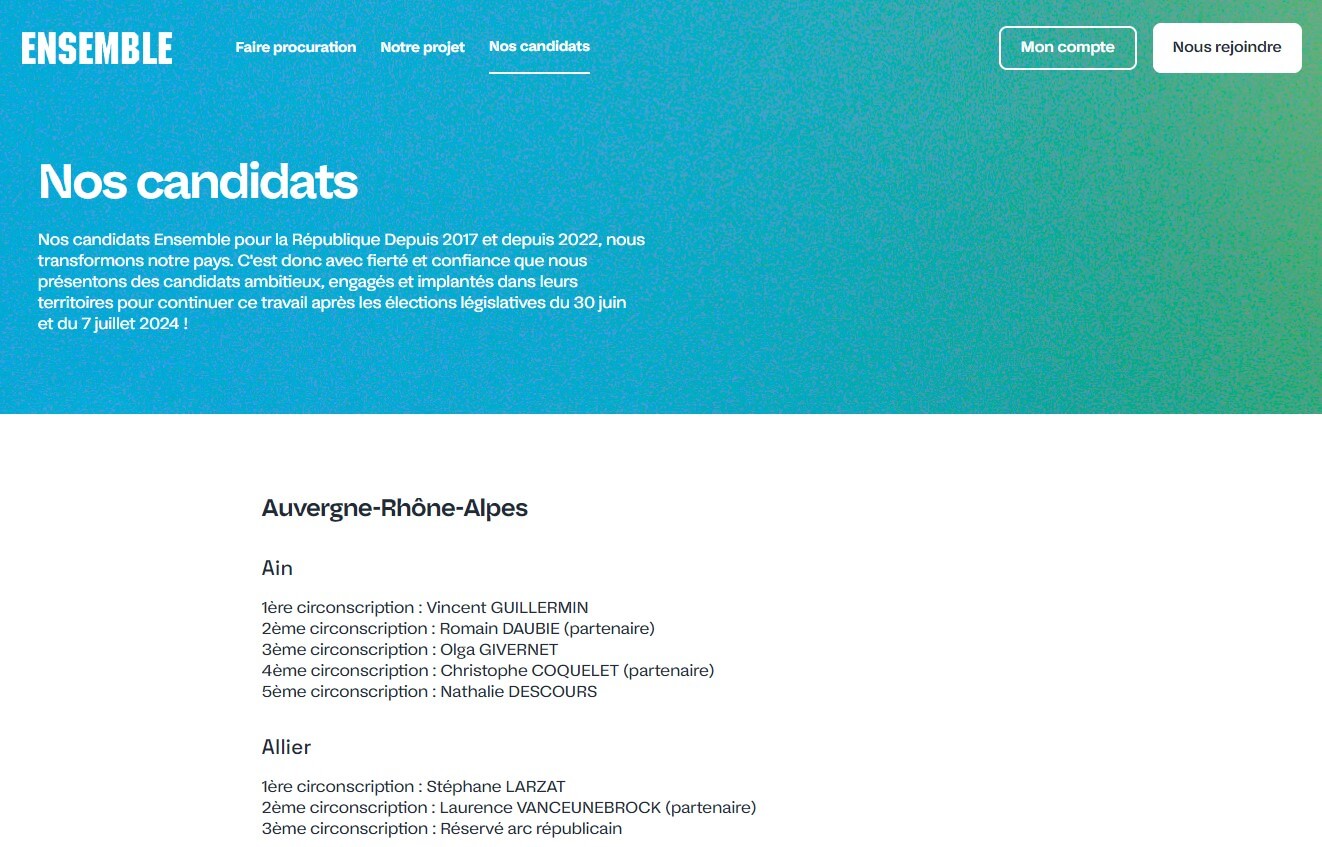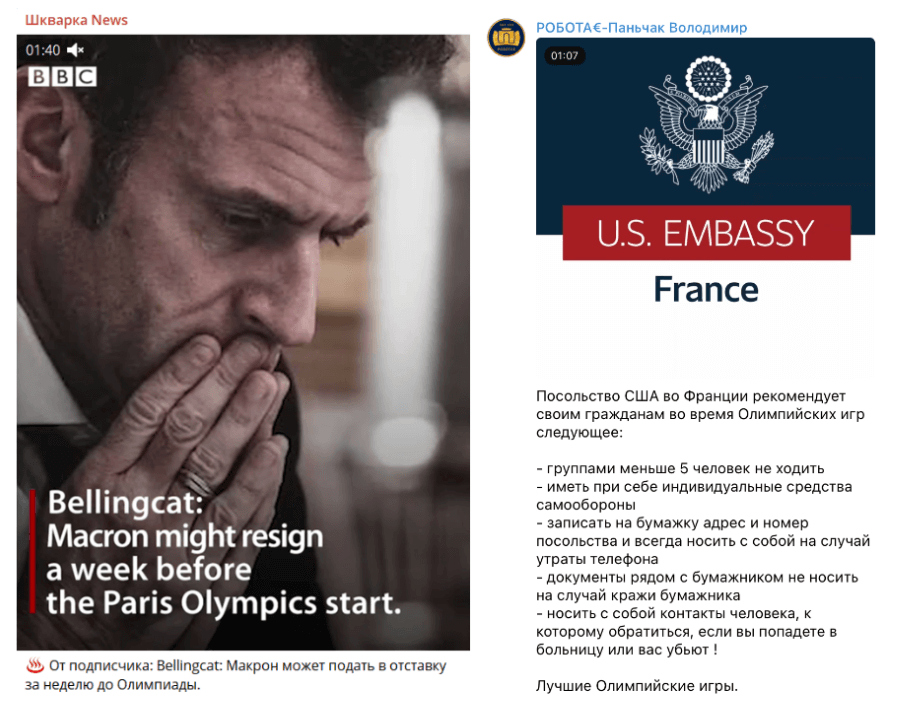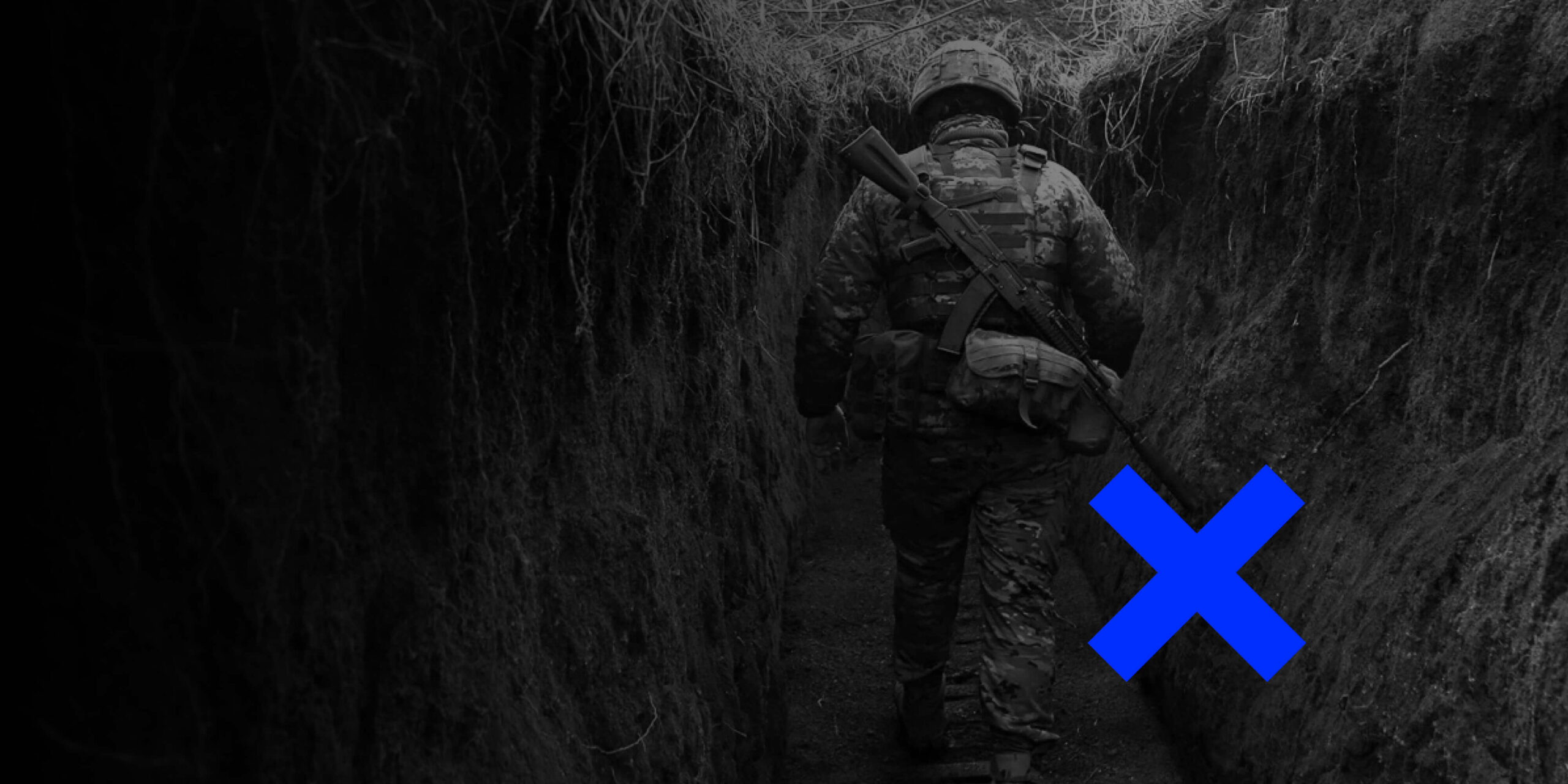Russia has been banned from the 2024 Olympics in Paris — its athletes will only be able to compete under a neutral flag. Therefore, Russia has turned to a “game” in which it has considerable experience: disinformation in Europe. Macron’s support for Ukraine and the upcoming extraordinary elections have become additional occasions for discrediting France. In June and early July, social media saw a mass spread of claims about “French mercenaries in Ukraine”, “undemocratic elections”, and a “dangerous 2024 Olympics”. The main goal is to discredit the leaders of France, but Ukrainians may also suffer.
Where Russia cannot reach with weapons or money, it attacks with information. More precisely, with a lack of truthful information and an oversaturation of lies. This happened during this year’s European Parliament elections and is likely to occur during the upcoming U.S. elections. Over the past month, France has become a priority target for Kremlin disinformation creators. Several significant events coincided: increased support for Ukraine by President Macron, preparations for the 2024 Olympics, and the extraordinary parliamentary elections.
Moreover, propaganda does not necessarily come in the form of blatant “Solovyov-style” rhetoric — disinformation is also becoming more sophisticated. Staged videos, fake reports and websites, fabricated publications from well-known outlets, and out-of-context photos or videos are all used to disguise lies in a more acceptable format. All of this is translated into English, French, and other European languages. Therefore, this article examines how to expose fakes and what the new wave of disinformation means for Ukraine.
The Staging of “French Mercenaries in Ukraine”
The story about “French mercenaries” on the front lines in Ukraine has turned into a sort of series, with new claims emerging every month, always accompanied by similarly “convincing” evidence. For example, in early June, the Russian embassy in South Africa posted a video allegedly showing the “Russian army capturing” a French soldier. The fake soldier’s chevron and his French, spoken with a noticeable accent, gave away the hoax. The local French embassy even responded, suggesting that the occupiers take French language courses.
Last week, another “episode” was published — claiming that the French in Ukraine had dressed… a pig as Macron and criticized their president for his domestic and foreign policies.
The authors stumbled over the same details — the chevron and the French pronunciation. In the video, the “soldier” wears a rectangular chevron with the French flag on his left arm. However, French soldiers’ chevrons usually feature the word “France” and are shield-shaped.
At the top is the fake video, and below is the original uniform of French soldiers
French analyst Random OSINT pointed out that the fake was also given away by the “soldier’s” poor French pronunciation.
Besides staged videos, another common method used by the Russians is creating fake magazine covers. One of their “favorites” is the satirical magazine Charlie Hebdo, for which they constantly invent new fake cartoons. This time, in the alleged issue No. 1665, the cartoonists depicted French soldiers as tombstones with the year of death listed as 2024.
On the left is the fake cover of issue No. 1665, and on the right is the real cover
The Charlie Hebdo website has an Unes section with an archive of all the magazine’s covers, including the original issue No. 1665 from June 19, 2024. Of course, there are no French soldiers on it — the cartoon is dedicated to the dissolution of the lower house of parliament and the elections.
Regarding regular military personnel, there has been no evidence of the French army being sent to Ukraine. In May, Emmanuel Macron stated that he “did not rule out” the possibility of deploying a military contingent to Ukraine, but there are no concrete plans yet. In June, he indicated that France plans to create a coalition of partners willing to send their instructors to Ukraine. These instructors will not participate in combat but will only train Ukrainians.
Foreigners, including French citizens, fight on Ukraine’s side solely of their own will, signing contracts with various units of the Defense Forces of Ukraine. They are not servicemen of other states or “mercenaries”. Instead, after signing the contract, the volunteers become Ukrainian soldiers.
Invented “Vote Buying” in the Elections
The first round of the extraordinary parliamentary elections took place in France on June 30. The far-right “National Rally” garnered 33% of the votes, the left-wing “New People’s Front” received 28%, and Macron’s “Ensemble” coalition obtained 20% of the votes. The second round will be held on July 7.
As with other elections, the situation for Russians is simple — democracy does not exist (except, of course, in Russia), and elections in the West are regularly rigged. Before the first round, Russian channels circulated a screenshot from the “Ensemble” coalition website, which includes the party of the French president. It allegedly offered voters €100 if they voted for the coalition’s candidates.
Such a site does exist, but it is fake. The original website’s address is “http://ensemble-2024.fr,” while the fake page’s address is “https://ensemble-24.fr.” Moreover, the domain of the original coalition site was registered on June 12, 2024, while the fake one was registered on June 19.
At the top is the “Our Candidates” section on the fake site, and below is the original site
The genuine “Ensemble” website does not offer €100. The design of the “Our Candidates” section differs from the design in the screenshot. On the original site, the candidates are listed in a column with their district affiliation, without photos. In contrast, the screenshot circulating online shows several candidates placed in a row along with their photos.
Playing in Revolution
After the first round, Russian and pro-Russian channels described the French protests as if a second French Revolution had begun in the country: “mass riots, pogroms, arson, looting, and barricades”. Although there were indeed protests in France, there was no shortage of fake news. Propagandists presented events from previous months as current ones or fabricated stories, such as protestors staging a large-scale fire in a Paris suburb.
Screenshot of fake
For instance, a video of a fire in the city of Bobigny was circulated online, claiming that “leftist activists” caused it after the election results were announced. In reality, representatives from the Seine-Saint-Denis department stated that the fire occurred on June 30 at 5:30 PM, a couple of hours before the election results were announced. The protestors had no connection to this incident.
Une vidéo d’un incendie en cours à #Bobigny circule actuellement sur les réseaux sociaux.
Cet incendie a eu lieu à 17h30 et n’est donc aucunement lié avec les résultats des élections législatives@Prefet93 en appelle à la responsabilité collective afin de ne pas… pic.twitter.com/pwNMZoyZvd
— Préfet de la Seine-Saint-Denis (@Prefet93) June 30, 2024
Alternative Olympics
In Europe, few take official Russian propaganda seriously. So, disinformation creators take a different route — they spread their narratives under the guise of publications in Western media or organizations. In the West, this operation is called “The Doppelganger” — Russians copy legitimate websites, steal media and brand symbols, and use them to produce fake content.
Recently, hostile accounts combined the discreditation of both the 2024 Olympics and Macron personally in their reports. For instance, a “BBC video” cited Bellingcat investigators claiming that Macron might resign a week before the Olympics, not only due to electoral defeat but also due to unpreparedness for the games and threats of terrorist attacks during the event.
Another fake used the logo of the U.S. Embassy in France, advising its citizens to move around Paris in groups of at least five people during the Olympics, carry personal self-defense items, and have a contact person to reach out to in case of hospitalization or death.
Screenshots of fake videos about the 2024 Olympics
In both videos, the logos of the organizations were taken from their official pages, and photos or videos were taken from previously published open sources. Moreover, even Eliot Higgins, the head of Bellingcat, had to debunk the “BBC report” on his Twitter.
The U.S. Embassy in France’s page does not recommend moving in groups of at least five people, carrying self-defense items, or having a contact person. Instead, it provides general information about the Olympics. The site includes advice for citizens, such as being cautious of pickpockets, not leaving belongings unattended, carrying a copy of the passport, and embassy contact information. Overall, these are standard tips for tourists in any country.
Creating fake reports and entire films like “The Olympics Has Fallen” is one of the main tactics of disinformation agents before the Olympic Games. This is mentioned in a report by Microsoft’s Threat Analysis Center, published in June.
The range of narratives is broad — from “threats of terrorist attacks during the Olympics” and “dire crime situation in France” to “exposing corruption in the International Olympic Committee”.
These are organized campaigns led by large groups of Russian propagandists Storm-1679 and Storm-1099. According to Microsoft analysts, they started discrediting the Olympic Games in 2023. The goal is to spread panic about the safety of the Games in Paris, which will begin on July 26.
What Does Ukraine Have to Do with It?
In the context of a full-scale invasion, information attacks against our partners are also attacks against Ukraine. Some fakes, like those about French soldiers, are directly related to the front line, while others are more aimed at destabilizing Western societies. Consequently, this leads to reduced support for Ukraine on the international stage.
In absolute terms, France is not the leader in aid to Ukraine: according to the Kiel Institute’s Ukraine Support Tracker project, as of the end of April 2024, France has committed to providing military, economic, and humanitarian aid amounting to $7.3 billion, of which $4.13 billion has already been delivered. However, in recent months, France has increasingly shown leadership: supporting the deployment of military instructors to Ukraine, agreeing to train Ukrainian pilots, and disregarding the Kremlin’s mythical “red lines”. Additionally, the President of France is another pro-Ukrainian voice within the EU and NATO.
The more pro-Russian deputies there are in the French parliament, and the more Russian fakes there are in the information space, the weaker Ukraine’s position in Europe will be. Therefore, the fight against disinformation should lead to the conclusion that the Kremlin’s games with lies end with the unfortunate realization: “The important thing is not to win, but to take part”.
Attention
The author doesn`t work for, consult to, own shares in or receive funding from any company or organization that would benefit from this article, and have no relevant affiliations
